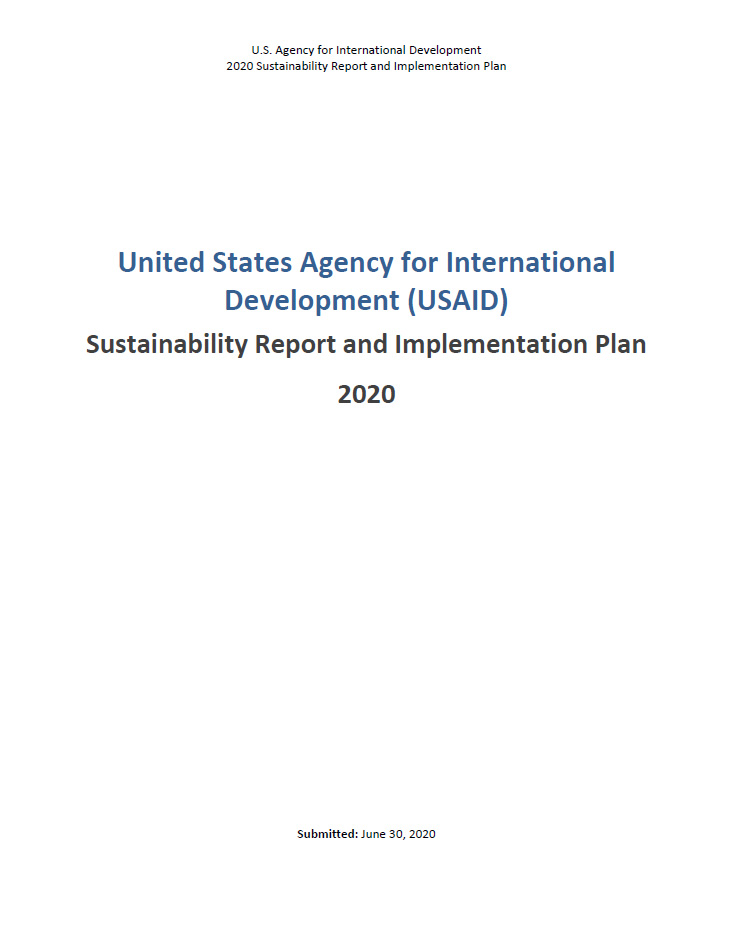Speeches Shim
Executive Order 13834 - Efficient Federal Operations, continues the policy of the United States that federal agencies increase efficiency and improve their environmental performance. Improved environmental performance protects our planet for future generations and saves taxpayer dollars through avoided energy costs and increased efficiency, while also making Federal facilities more resilient.
Section 7 of the Executive Order requires federal agencies to submit an annual sustainability plan to the Council on Environmental Quality (CEQ) and the Office of Management and Budget (OMB). Contributing agencies, such as the U.S. Agency for International Development (USAID), need only prepare a summary of agency actions.
POLICY STATEMENT
USAID is committed to fostering a clean energy economy and to sustaining the environment by conducting operations and programs in an environmentally responsible manner, complying with environmental laws and regulations, and leading by example.
USAID’s programs operate globally and impact millions of people worldwide. In response to the growing concerns about the adverse impacts of climate change, USAID’s mission is to improve the living conditions of people in developing countries while minimizing detrimental impacts to the environment. USAID helps these stakeholders generate prosperity in innovative and sustainable ways while conserving natural resources and minimizing contamination.
USAID’s sustainability program includes the following areas of emphasis:
- Integrating climate change adaptation strategies into USAID’s programs and operations in order to minimize risks to Agency assets and program activities
- Procuring energy efficient and environmentally preferable electronic products and utilizing sound environmental practices when disposing of those products
- Supporting green transportation and a reduction of Greenhouse Gas (GHG) emissions from employee commuting
- Designing, constructing, and operating high performance facilities and using regional and site-specific green infrastructure practices
- Engaging employees, stakeholders, and the public in our environmental commitment
- Reducing consumption and reliance on nonrenewable energy by promoting renewable energy projects and programs
- Promoting water conservation through identification of water inefficiencies and implementation of water conservation projects
- Implementing sustainable acquisition practices for recycled, energy efficient, bio-based, and environmentally preferable products and services
- Pursuing waste management strategies that include reducing, reusing, and recycling


Comment
Make a general inquiry or suggest an improvement.